Category Archive
The following is a list of all entries from the General category.
Marriage Equality is not Maine-stream
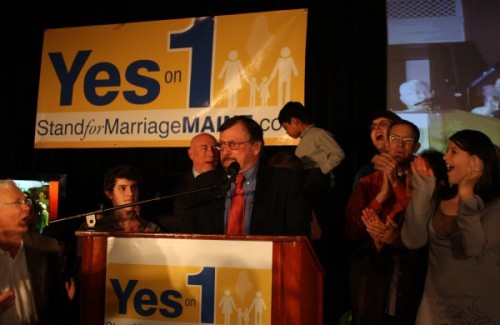
In May of this year, the legislature of the New England State of Maine, voted to become the fifth State in the USA to legalise Marriage Equality. The Five being Massachusetts, New Hampshire, Vermont, Connecticut, and Iowa. Marriage Equality is simply that – giving the equal status of full Marriage rights to the LGBT Community.
As soon as the new bill was passed, a campaign began to get a ‘people veto’ – where a referendum is called to vote on the new law. This was seen in the Prop 8 Campaign in California, where the equality ruling was overturned. The anti-Campaign – initially started by the Roman Catholic Church, and quickly supported by the traditional Evangelical and Fundamentalist Churches – needed at least 55,087. (Moody, No on One website) This was achieved and after a lengthy campaign, Maine voted on Tuesday.
The question being voted on was “Do you want to reject the new law that lets same-sex couples marry and allows individuals and religious groups to refuse to perform these marriages?” On Tuesday the electorate of Maine – in a high turnout – voted Yes by 52.81 percent of the vote and No 47.19 percent. The legislature of Maine gave a minority equal rights. The people of Maine took that equal right away.
“What the people of Maine had to say is that marriage matters and that it’s between a man and a woman,” said Marc Mutty, chairman of Stand for Marriage Maine, in a speech.
“It has been the little guy against the big guy in terms of resources — human resources, financial resources — and we prevailed because the people of Maine, the silent majority, the folks back home, spoke with their vote tonight,” Mutty said.
So, defending the rights of a minority is now the ‘big guy’ (and we all know that inherently means the bad guy). I’m unsure how that is possible, but ok! Its just as well the Civil Rights movement didn’t have to face the “silent majority”. There would never have been an end to racial segregation in schools, public spaces, jobs. Or marriage. The Constitution of the United States, has once again, been ignored. All people are not equal, nor imbued with the same rights. The rights of some people can be taken away by their neighbours, or in the case of other States, guaranteed that the State will never accept a right for them in the first place.
Again, the traditionalists used the same, tired old arguments, that Marriage Equality would result in homosexuality being “promoted” (such a strange concept) and children would be ‘at risk’ of being recruited to the so-called ‘gay lifestyle’.
Many straight people, who are not anti-gay, did vote against marriage equality. Many stated that they were happy with LGBT people having civil-unions, but were unhappy with the use of the term ‘marriage’. That puzzles me. Why is the word ‘marriage’ illegitimate for same sex couples? Where does the threat to heterosexual marriage come in? How can homosexuality be a threat or a destructive force against straight marriage? The heterosexual community has managed to threaten the credibility of marriage all on its own. Extending the rights of marriage to the LGBT community has no impact on anyone else’s marriage.
Of course, in Maine, as in many places in the US, the debate is a religious one, not a legal one. Many commentators have stated the defeat of marriage equality comes from the high percentage of Roman Catholics in Maine (around 27%) and the Evangelical Church.
Uganda and the Anti-Homosexuality Bill
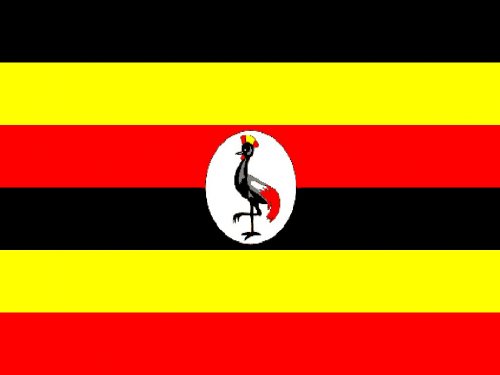
A storm is brewing in the African nation of Uganda. On the 14th of October 2009 a Bill was tabled in the Ugandan Parliament and seeks not only to strengthen current legislation against the LGBT Community in Uganda, but to extend it even further.
The British Empire era left Uganda with Penal Code 145 which criminalises “unnatural acts” between men of the same sex. This can lead to 7 years in prison etc. Such a Code is fairly common amongst ex-Colonies of the British Empire (see the repeal of such a Code in the State of Delhi by the Supreme Court). Of course, it was only 40 years ago that an equivalent law was repealed in Great Britain. However, this Bill proposes not only that LGBT people can be arrested and imprisoned, in some circumstances (particularly if they have HIV/AIDS) they can be executed for same sex acts. But the Bill targets not only those who are LGBT, it targets any who know or suspect someone is Gay!
A Coalition of NGOs who oppose the Bill released a Statement condemning the proposed legislation. They have sumarised the extent of the impact the Bill would make on many sections of society:
– any parent who does not denounce their lesbian daughter or gay son to the authorities: Failure to do so s/he will be fined Ush 5,000,000/= or put away for three years;
– any teacher who does not report a lesbian or gay pupil to the authorities within 24 hours: Failure to do so s/he will be fined Ush 5,000,000/= or put away for three years in prison;
– any landlord or landlady who happens to give housing to a suspected homosexual risks seven years of imprisonment;
– any Local Council I – V Chairperson or Executive member who does not denounce somebody accused of same-sex attraction or activity risks imprisonment or a heavy fine;
– any medical doctor who seeks to prevent the spread of HIV/AIDS through working with what are known as most at risk populations, risks her or his career;
– all civil society leaders, whether in a Community Based Organisation, NGO, or academic institution; if their organisations seek to have a comprehensive position on sexual and reproductive health, they risk seeing their organisations closed down;
– any human rights activist who seeks to promote an understanding of the indivisibility and inalienability of human rights would be judged to be promoting homosexuals and homosexuality, and be punished accordingly;
– any religious leader who seeks to provide guidance and counselling to people who are unsure of their sexuality, would be regarded as promoting homosexuality and punished accordingly;
– any Member of Parliament or other public figure who is sent a pornographic article, picture or video will become vulnerable to blackmail and witch-hunts;
– any media house that publishes ‘pornographic’ materials risks losing its certificate of registration and the editor will be liable to seven years in jail;
– any internet café operator who fails to prevent a customer from accessing a pornographic website, or a dating site, could be accused of ‘participating in the production, procuring, marketing, broadcasting, disseminating and publishing of pornographic materials for purposes of promoting homosexuality’; their business licence could be revoked and they themselves could land in prison.
– any Person alleged to be a homosexual is at risk of LIFE IMPRISONMENT and, in some circumstances, the DEATH PENALTY.
The full text, including the list of organisations who have signed the Statement and a list of the Articles of the Ugandan Constitution they believe such legislation would violate can be read here.
What has caused this Bill to be proposed? The argument has been put forward that the liberalising of Ugandan culture and the growing LGBT community has meant the Bill is necessary to ‘protect’ Ugandan Christian, family and African values.
The Church of England traditionalist group, Fulcrum, has a very fair, balanced and informed posting on their website regarding the proposed Bill. I highly recommend you read it here
A coalition of NGOs in Uganda have published a statement against the
Paradigm Shift (draft 1)
The more I speak to Gay folks, the more sure I am. Sure that things have to change.
Now, I accept that change is difficult. We prefer stability to instability, the known to the unknown, confidence to the lack of confidence.
The whole ‘gay issue’ has – for the vast majority of the orthodox Church, been clear cut for centuries. For many within the orthodox Church, it is as clear cut today as ever. Therein lies the problem. When we know the ‘truth’ of something there is no point in revisiting it. Why look at the ‘gay issue’ theologically, pastorally, socially? That is the response from the historic, traditional, orthodox section of the Church.
Its a good question. The answer is simple – because its crucial for the Church to stop. And to review its position. Now I understand that the traditional Orthodox folk don’t view their actions or reactions to LGBT folks as persecution, but it doesn’t change the reality on the ground.
The traditionalists don’t have to like it, but they do have to be honest. The whole question is not a ‘liberal vs evangelical’ one, nor a Bible-believing vs Revisionist. There is genuine disagreement amongst those who view Scripture on the same footing – amongst those who hold the Bible as the ultimate Authority and utterly Authoritative as God’s Word.
It is time for the traditionalists to accept and recognise the genuine disagreement. There is no more room for them to complain that the Liberals are changing the Church or trying to oust them – in whichever denomination the argument is taking place. The listening process must start! Why do I think it is crucial? After all – I would argue that the raising of the issue to a ‘fundamental’ by the traditionalist wing is beyond the pale. It is crucial because in this torid debate, real people are being affected. And even if the traditionalists won’t accept it, real Christians are being affected. People who have been saved by the work of Jesus and presented by Him to the Father as “without fault” (Jude 1:)
Christianity: I or We?
Some words are funny. If you say them over and over they soon seem to fall apart and don’t sound like a real word after a while! One of the classic examples of this for me is ‘worship’. And yet, it is possibly the most important word in the English language.
I remember it used to be a great topic of discussion in the Christian Union as to what the primary function of the Church was. Of course, the majority argued that it was to share the gospel. It seemed pretty simple! Where is the debate?! And I’d almost agree with them. However, those of us from the Reformed background argued that the primary goal of the Church (in fact all mankind!) is to worship God. Maybe we said it rather smugly. OK, we said it very smugly. But I’ve been thinking about worship a lot recently. Probably because a) I am about to sit at the Lord’s Table for the first time since 2006, b) because I am preaching at a weekend conference on ‘the Uniqueness of Jesus’ at the end of September.
I come from a Reformed background, where we sang Inspired materials of Praise, unaccompanied. There were no hymns composed by men, none sang that were not included within Scripture, and no musical instruments other than the human voice. Though it was ‘exclusive Scripture’ in practice it was exclusive Psalmody. I understand that is now a massively minority practice. Over the last 140 years it has gone from being the majority position of the Presbyterian Church, to one only being practiced by the very fringes.
I worship in a congregation where a variety of worship material is used – from the Psalms to classic hymns of the 1700s-1800s and modern worship songs. I’ve never bought into the Worship Wars of hymn singing churches where people stand aghast at modern worship songs or attack the ‘old’ hymns. But one thing strikes me going through hymn books – and that is whether its a ‘hymn’ or a modern worship song. The use of the personal pronouns – “I”, “Me”, “My” – as opposed to the pronouns “We”, “Our”, “Us”. I’ve picked a few hymns/worship songs at random:
“Here I am to Worship”
“Jesus Lover of My Soul”
“Be Thou My Vision”
Now, there are some hymns and worship songs out there with a more corporate/community element. But the vast majority seem to be very personal, dare I say individualistic. This raises an instersting question I think. Why? The Psalms, for example, do have a good representation of the “I”, “Me” personal pronouns. But a large number are collective “we” “us” etc.
I’m not slating the “I/Me” praise songs. The ones I have listed are some of my favourites. It is refreshing to sing personally whether in private praise or public. A gathering singing “I” can be a powerful testimony to the God we are praising as well as to eacho other of the communality of our sentiments – we all are saying the same thing to God. But I think it also has a very Modern (and I mean that in the philosophical label of post-Enlightenment thinking) and perhaps even a Post-Modern emphasis on the individual even in the face of it being a corporate, public act of worship. We seem to be happy to come to God individually even in a crowd. This does trouble me.
So often we see the spirituality and praise of Scripture being a corporate event and experience.
afsrsdfdf
dfsdfjsdkjfkdsjjfkdsffffffffffffffffjkl jkdsjfkldsjflkdsj f ksdjfklsdjfkldsjf dslkj sdkjfskldjf dskj lkdsjflksdjls fkserwer weroasdpok eroewporipeof oierposdkjf er sdfkj sdfijuemsaa asjefkjsf adjsdflkjasdfl jeij
GOMA and the Book
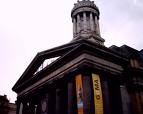 What is Art?! It’s a question that has been fiercely debated for centuries – probably since the first piece of art was created. Great philosophers like Plato based whole swathes of philosophy on the nature of aesthetics and art.
What is Art?! It’s a question that has been fiercely debated for centuries – probably since the first piece of art was created. Great philosophers like Plato based whole swathes of philosophy on the nature of aesthetics and art.
Over the last few years Modern Art and architecture have caused great great controversies – whether it is an unmade bed or a dead animal suspended in formaldyhyde.
Now such controversy has hit Glasgow. Now, I have not had the opportunity to see the exhibit and will add to this once I have. The Metropolitan Community Church congregation in Glasgow got involved with GOMA’s (Gallery of Modern Art) Sh(out) Exhibition . Each year GOMA has an exhibit on questions of social justice and this year it is considering LGBT issues.
 MCC in Glasgow got involved, working with an artist that is displaying several works in the exhibit to highlight issues of faith and sexuality. However, one aspect of the exhibit has caused fierce controversy, with the Gallery being picketed today (28th July) by a variety of Christian protestors, and the Daily Telegraph has reported that the ‘scandal’ has even reached the Pope, who has condemned the exhibit as “disgusting”. This follows reports on Reporting Scotland last week where CARE (Christian Action Research and Education) Scotland Director Gordon MacDonald made clear his disgust at the exhibit.
MCC in Glasgow got involved, working with an artist that is displaying several works in the exhibit to highlight issues of faith and sexuality. However, one aspect of the exhibit has caused fierce controversy, with the Gallery being picketed today (28th July) by a variety of Christian protestors, and the Daily Telegraph has reported that the ‘scandal’ has even reached the Pope, who has condemned the exhibit as “disgusting”. This follows reports on Reporting Scotland last week where CARE (Christian Action Research and Education) Scotland Director Gordon MacDonald made clear his disgust at the exhibit.
The picketing and disgust expressed by various Christian organisations revolves not around the actual LGBT exhibits, nor even the wrestling with faith and sexuality (though I am sure something of that was involved). Rather, the reason for the storm is that one of the exhibits asked people to write in a copy of the Bible. Some of those who took up this opportunity wrote offensive things in it, swear words, that the Bible was “the biggest lie in history” etc.
 The name of the exhibit with the open Bible is “Made in God’s Image”. It deals with the issue that people from the LGBT community have been excluded historically from the Christian community. The report of BBC Scotland last week suggested that the intention behind the placing of the Bible was for people to freely express their anger and feelings (positive or negative) towards the Bible and homophobia exhibited in the Christian Scriptures. However, MCC have themselves issued a statement to defend the exhibit. The Rev Jane Clarke, pastor of Glasgow MCC, writes:
The name of the exhibit with the open Bible is “Made in God’s Image”. It deals with the issue that people from the LGBT community have been excluded historically from the Christian community. The report of BBC Scotland last week suggested that the intention behind the placing of the Bible was for people to freely express their anger and feelings (positive or negative) towards the Bible and homophobia exhibited in the Christian Scriptures. However, MCC have themselves issued a statement to defend the exhibit. The Rev Jane Clarke, pastor of Glasgow MCC, writes:
What was the idea behind writing in the Bible?
As Part of the art project we had been exploring the place of LGBT people in sacred history. Our main contribution to the exhibition was a series of photographs of modern icons in which we stake our claim to be part of the family of God. Many people will tell you there are no LGBT people in the Bible so we invited visitors to the exhibition to write their names in a Bible to show that there are.
Rev Clarke goes on to explain that the point of the open Bible was, after reflecting on the photographs, people could write their own names in the margins of the Bible. This highlights both the marginalisation of the ‘queer’ community in the Church and that contrary to this experience, the love of God includes LGBT folk. Jane continues that she expected people to be mature enough to use the opportunity in the way it was intended and not as an opportunity to mock Christianity or the Bible. To the question
Wasn’t it a bit naive to expect people only to write their names? Jane answers “With hindsight, yes. Some of the messages left in the Bible are rather infantile, which I didn’t expect. But many people are expressing their pain at being excluded from Christianity.”
So, what of all of this? I would argue that it is a storm in a teacup that has, frankly, really surprised me. Numerous national and local papers have taken up the story, from the Daily Telegraph and Times to the utter-waste-of-paper the Daily Mail. Of course, the media love any story that makes religion – particularly Christianity – look stupid. And thats exactly what the Pope and the protestors have done. More importantly it has made Christianity look weak, even more irrelevant than the general public already thought, and whiney. Let’s not forget what happened. Some people wrote rude or offensive things in the pages of a book. That goes on in every school every day. If it was wrong for the Bible to be put out – because it could be defaced – then the Gideons Society should shut up shop straight away. They give out thousands of copies of the Bible or New Testament to Scotland’s school children every year. The result? Within 30 minutes, the vast majority of them have been written in, torn up, stood on, and ultimately binned. Similarly their Bibles in prison cells, hospital beds and hotel rooms.
I’m shocked by the response of the protestors. “They wouldn’t do it to the Qu’ran” they cry. No? Maybe a Muslim artist wouldn’t put the Qu’ran on show like that. But thats irrelevant (though I do think Christianity is fair game in many people’s eyes who would never dream of saying the same things about Islam but thats another story). For a Muslim, the Qu’ran is a holy book. The very pages of the book are sacred. The ink is sacred, the binding is sacred. Whole rituals have sprung up over how to carry it, hold it, read it, and place it down/store it when not in use. Christians do not understand the sacredness of the Bible in this way. We place Bibles on the floor, in our bags, in our bathrooms. We DO write in the margins, underline, highlight texts. I’ve got a Wide-Margin NIV for exactly that purpose, where I write notes/note where a text has been preached on etc. I do not revere the pages, the ink, the binding of the Bible. Its just a book – like any other – in that respect. We translate Scripture into the “vulgar tongue”, the common dialects of thousands of languages. That is in itself blasphemy to the Muslim. For a Muslim the importance is being able to read aloud the Arabic text (as if) it is the original without change or alteration. For the (average) Christian, it is not the original text in Greek or Hebrew that we read. It is a translation – for the importance is not the form or feel of the original words – but the meaning that is crucial.
The Christian holy book – the Christian Scriptures – are meant to be looked at, investigated, tested, mulled over, weighed up. So what if someone writes in a Bible “Jesus was bisexual” – like one of the comments written in the GOMA exhibition. Was it meant disrespectfully? Who knows, but probably. God is big enough to defend himself! And saying Jesus was bisexual is not that offensive. Whatever his sexuality, there is no record that he was in a relationship. Therefore, we are on safe ground to assume that he didn’t have one. More than that, we know that Jesus was sinless and fulfilled all of the Law, being a worthy and indeed the only possible sacrifice on the Cross acceptable to God for the payment of sin. What is offensive from the Bible’s viewpoint is saying that Jesus is not the Son of God, not who he claims to be. That’s what the Church should be concerned about – that the vast majority of the population don’t know (or care) about the real identity of Jesus.
That brings us back to the point of the exhibit. It was meant to express to the LGBT community that they (we), are made in the image of God, loved by God, redeemed by his Son in the same way as anyone else. The position was that the LGBT community are not explicitly mentioned in Scripture and the opportunity was there to personalise the Bible and get us back into salvation history. There is a good debate to be had over that. ‘Made in God’s image’ is part of that ongoing debate. I do not for one second believe that the Bible is homophobic or excludes queer folk. In fact I’d say the opposite. So if there was any hint in the exhibit to that effect, I’d be happy to interact with it and defend the place of LGBT folk in Scripture. But the principle to getting people – especially historically exempt, folk who are even today painfully and publicly unwelcome in the vast majority of churches – to think of themselves as loved by God and what that means is a fantastic thing. It is no different than the old exercise we used to do in Scripture Union meetings where you would take John 3:16 – “For God so loved the world that he gave his only begotten son, that whosoever believes in him should not perish but have everlasting life” and replace “world” with your own name.
Is it art? What is art! It has got people talking, perhaps even some thinking. I’m sad that its been removed actually. I think it was a worthy attempt at speaking the awesome, beautiful inclusive and lifegiving love of God to the gay community. That some people – gay or straight – wrote offensive things is sad. That they don’t know the reality of a personal relationship with the loving God-Man Jesus is far far sadder. That the Church – through an abuse of the holy book it claims so to love and respect, honour and be guided by – has been able to turn sections of society away from God and even to the point of being repelled, afraid and hold him in contempt is the real crime. I hope in a small way, the light of the beauty and love of Jesus will shine in all this and help MCC Glasgow – and all Gay Christians in the city and far beyond – share the inclusive love of God with those whom the Church (not God) has marginalised and excluded.
The Episcopalian Church and Inslusion
I just wanted to get this one up quickly. The Episcopal Church of the USA has voted to lift the ban on clergy in same sex relationships into the office of Bishop. This has caused a sensation and reaction across the Communion. Read a great rebuttal to the Times article of Bishop NT Wright here. Fuller comment on Mishkan soon!
And the world goes on…
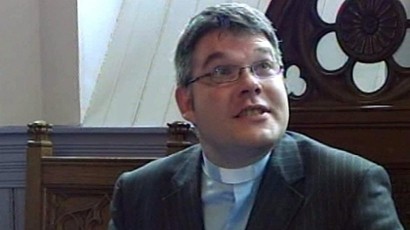 Friday (3rd July 2009) was a big day on one hand and an extremely normal day on the other. It was the Induction of the Rev Scott Rennie to the congregation of Queen’s Cross, Aberdeen.
Friday (3rd July 2009) was a big day on one hand and an extremely normal day on the other. It was the Induction of the Rev Scott Rennie to the congregation of Queen’s Cross, Aberdeen.
It was a normal Induction service, despite the abnormal journey to get there. The Presbytery met before the service, the congregation gathered. Suitable praise and prayers were offered, the Word was read and an appropriate sermon preached. Rev Rennie was asked to take the Vows in common with what he and all ministers take in the Church of Scotland at their Ordination and repeated at all Inductions. Rev Rennie answered the Questions put to him correctly and signed the Formula to confirm. He reiterated his beliefs in the historic Christian doctrines and his willingness to lead his congregation with “zeal for the gospel”.
Thousands of miles away on Thursday, India jumped forward with respect to gay rights. Up until 1860, there was no legislation against homosexuality in any of India (modern day India, Pakistan and Bangledesh). Then in 1860 the British Colonial government imposed a ban on “carnal intercourse against the law of nature” – namely and including (male) same sex acts.
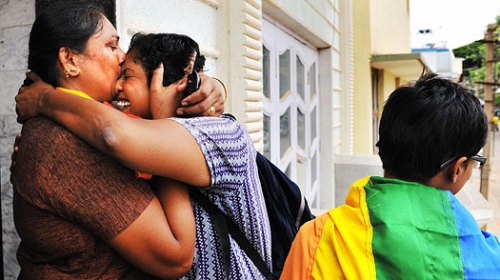
On Thursday the High Court of India overturned Statute 377, arguing that it went against “the Indian tradition and guiding political principle of inclusiveness”. (Time.com)
Planting a seed (of hope?)
 I have to say I don’t have green fingers. I wish I did, and I am beginning to get into the garden now. I love plants and growing up always enjoyed getting in on the action in the garden, whether it was the vegetable patch, the pond or just general planting.
I have to say I don’t have green fingers. I wish I did, and I am beginning to get into the garden now. I love plants and growing up always enjoyed getting in on the action in the garden, whether it was the vegetable patch, the pond or just general planting.
But I confess to hating all the ground work necessary in gardening. I wanted the veg, but didn’t want the soil preperation, working in the manure and soil conditioner. I enjoyed watching the wildlife enjoy the flowers but hated weeding.
Now its back to that feeling again! We’ve a long border that has had nothing planted in it for years – certainly since we moved in 2 years ago and its been over-run with weeds. But the soil is dreadful. Its very heavy and when it rains the clay-soil just clumps together. With all the weed roots in amongst this its just a nightmare. The lazy part of me (which is very loud) thought we should just biosheet it and put new top soil on top – i.e. start again and then plant stuff. However sense has prevailed. Brian has turned over the soil a couple of times but now we are both doing it its much easier – go figure!
So the other day we got manure and soil conditioner. We planted a himalayan poppy from Gran’s garden. And after another few turns of the soil it feels so much better its not real. The clay is still there, but the difference is incredible after some hard work. This afternoon I’ve planted some sunflower seeds. In 14-21 days (in theory!) there should be some life showing and then over time, there will be a beautiful plant to bring enjoyment.
However, looking at the soil now there is no indication of anything happening. The seed is buried and until life shows its head in a few weeks time. Its a risk.
The resurrection was described in these terms in the New Testament. But it also made me think about the current period of “prayerful dialogue” that is to be engaged in the Church of Scotland over the place of homosexual people within the life and ministry of the National Kirk (and membership as well).
Currently, the soil is a bit of a mess. The Church is divided. The broadness of the Church has been a strength and a weakness. There is little if anything that links one extreme with the other. They don’t have a shared understanding of God, salvation or the Church. The one Spirit, one Faith, one Baptism model just isn’t evident. I can take the analogy too far – but just like my soil which is clay-ey, the groups within the CofS clump together and ignore those with whom they are different from. This makes them feel better, but it doesn’t produce productive ground.
So the soil needs prepared. I think this is the start of the “prayerful dialogue”. It means hard work and adding in some matter that hasn’t been there, that is negelected. I would propose that this matter is several-fold:
1) Work out why we believe what we do
This involves looking at our preconceptions. For example, is our position because of how we view Scripture, or our experiences, sense of jusice/natural law, science etc.
2) Listen
We don’t need a monlogoue, we need a dialogue – where everyone is heard. Everyone is inclusive. There are people I don’t want to listen to! Perhaps because I’ve listened before or because I presume to know what they are saying. Acknowledge that and move on.
3) Be open and honest with our narratives
Once we listen people are more willing to listen to us and our stories. Of course, the point of you listening isn’t that you then get to speak. Listening means actually listening, not sitting there waiting for them to finish so you can give your side. Its like the Hebrew word “shema” – “Hear O Israel…” repeated in the Divine voice from heaven at the Transfiguration “Listen to Him” The root means not just physically listen but listen and obey. Well in dialogue we must listen and act/take in/understand.
Of course, in the question of the “prayerful dialogue” and the 2 years of debate, some have given a heads up that they are unwilling to enter into debate. For them, they “know” what the Bible says and “know” what their opponents say. There is nothing to discuss. I find that very difficult, particularly because many of those are “naturally” my brothers and sisters in our understanding of the theology of the Bible, Trinity and fundamentals. I also find it difficult because I held their position re. sexuality. After studying, listening and praying I changed my position, realising I had been wrong. I had a vested interest in the topic, as I had struggled with my sexuality – and so am obviously accused of changing to suit myself. If I had been straight it is unlikely – to my shame – that I would have sat down and looked at the issue which I took for granted. That is why I find “straight-allies” so utterly amazing.
The debate is the poorer for the unwillingness of some to enter into discussion; those who refuse to engage in dialogue are also the poorer for it. Of course, many within the conservative evangelical camp are willing to dialogue which is fantastic and essential.
Its not a one sided problem either. Many within the inclusivist camp (evangelical or liberal) are unwilling to listen or dialogue. Both sides want their own understanding to become the stated position of the Church. Dialogue is risky for both sides – it can lead to chaging our minds after all – thats one of the dangers of listening! It can also lead to you understanding with the other side, even if you don’t end up agreeing with them. And lastly, it can lead to compromise.
Only when we enter into this line of dialogue will the seeds grow for the benefit of the organic unity of the Church of Scotland. Its not just the conservatives that need to listen, the inclusivists need to listen as well. Its not only the inclusivists that need to understand their ‘opponents’ its the conservatives as well.
Planting seeds is always risky. All that work in preperation, watering, tending and in the end there may be no fruit. But its a certainty that there will be no fruit if we don’t do all the hard work. Are we willing to develop green fingers?
“He held his [wife’s] hand in public”
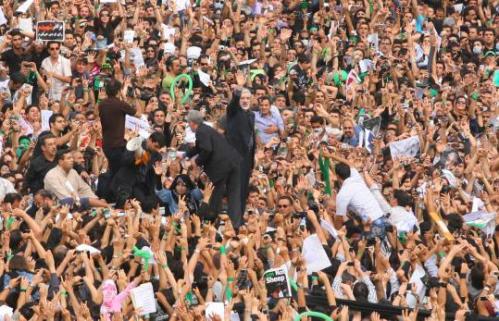 I think this is one of the only pages in the blogosphere that hasn’t mentioned the internal conflict currently raging in post-election Iran! I know many Iranians; it is a beautiful and dignified country, where her people are much more open than the ruling class and western media would allow you to think. Justice is universal – there is a right and a wrong. Election tampering is wrong and hopefully, if this has taken place – as it seems likely – this will be sorted so that the voice of the people are heard.
I think this is one of the only pages in the blogosphere that hasn’t mentioned the internal conflict currently raging in post-election Iran! I know many Iranians; it is a beautiful and dignified country, where her people are much more open than the ruling class and western media would allow you to think. Justice is universal – there is a right and a wrong. Election tampering is wrong and hopefully, if this has taken place – as it seems likely – this will be sorted so that the voice of the people are heard.
Saturday saw the State strengthen its response to the demonstrators, using live rounds, tear gas and riot police to break up crowds. Both sides seem determined not to give in, so pressure continues to build.
I was reading Daniel Finkelstein’s Opinion piece in Wednesdays ‘The Times’ – read the article in full here – and was struck by his description of Mr Mousavi, the “runner up” in the recent elections and the new darling of the reformists/moderates in Iran. Discussing the general desire for liberty and democracy throughout the world he goes on to say:
“The clue lies in a single, almost heartbreaking, detail, tucked inside the reports of Iran’s presidential election. Mir Hossein Mousavi – the dry, bureaucratic insider who became the unlikely hero of the reformist protestors – is not a charismatic man. But he did one truly eloquent thing. He held hands with his wife in public. He held his wife’s hand. In public. It makes you weep for a society in which this seems daring. But it turns out that for millions of people it was the hopeful sign they had been awaiting. It was a tiny crack in the dam. It was light in the darkness, a small battery torch of light, but light all the same.”
Iran follows a form of Islam where open displays of affection even between husband and wife is not allowed. Indeed, part of the campaign against him during the election was because his wife was involved in campaigning – first time ever a presidential candidate’s wife has campaigned.
Now I don’t want to make any comparison between life in the UK and Iran. In the UK we have freedom which is not experienced by most in Iran. The current demonstrations and the Government crack down is a dangerous situation that has already cost some lives and many beaten and imprisoned.

However, I think Finkelstein put it beautifully – “He held hands with his wife in public. He held his wife’s hand. In public. It makes you weep for a society in which this seems daring.” The only time I have held my partner’s hand in public was on a Pride march, where there was “safety” in numbers. We do not sit in the cinema holding hands, like the couples around us. Walking down the street, we do not hold hands as much as I want – and need – to. No holding hands over the table sitting in a restaurant for us. It makes you weep for a society in which this seems daring. Indeed it does.
Let me tell you about another time I held my partner’s hand in public. Sitting in the public gallery of the General Assembly of the Church of Scotland on the Saturday evening of the Aberdeen case. Of course the circumstances are well known, and read my blog of it here. The Gallery was full. I was struck that there were 4 gay ministers sitting in close proximity. We hadn’t planned it, or organised it. But all 4 of us were sitting there with our partners, to see where the Church of Scotland stood on people like us in ministry.
At one point, my partner reached out and took my hand, and kept hold of it for the next 4 hours of the debate, that ended with the Presbytery’s decision being upheld and Assembly agreeing that Scott should be inducted to a new congregation that had called him. Now, it wasn’t obvious. It wasn’t showy. The people on either side of us and those in front could see if they looked, but it would be unlikely anyone else did. It wasn’t a political statement. It was a gesture of love and support from my partner during what was a traumatic time for all LGBT people in the Church of Scotland.
Holding hands. Its a simple thing with profound significance. However it is for me – and millions of other LGBT folk – still a “daring” thing. I hope that it will become less daring for a man to hold his wife’s hand in public in Iran. I pray it will become less daring – no – become acceptable, common-place for all LGBT people to hold their partner’s hand in public here (and everywhere else including Iran!!).
He held my hand in public.
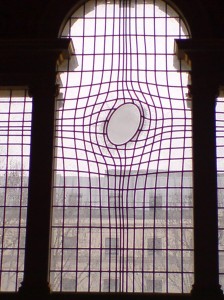
 “If I profess with the loudest voice and clearest exposition every portion of the truth of God except precisely that little point that the world and the devil are at that moment attacking, I am not confessing Christ, however boldly I may be professing Christ. Where the battle rages fiercely is where the loyalty of the soldier is proved, and to be steady on all the battlefield besides is merely flight and disgrace if he flinches at that point”. (Martin Luther)
“If I profess with the loudest voice and clearest exposition every portion of the truth of God except precisely that little point that the world and the devil are at that moment attacking, I am not confessing Christ, however boldly I may be professing Christ. Where the battle rages fiercely is where the loyalty of the soldier is proved, and to be steady on all the battlefield besides is merely flight and disgrace if he flinches at that point”. (Martin Luther)
You must be logged in to post a comment.